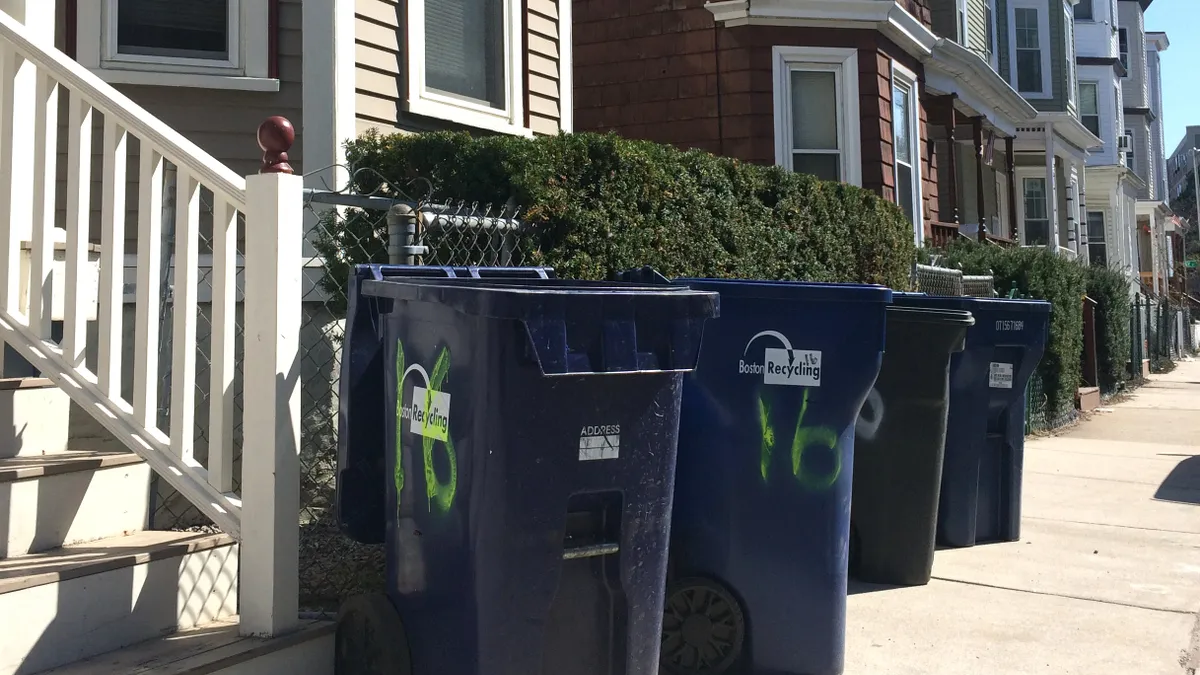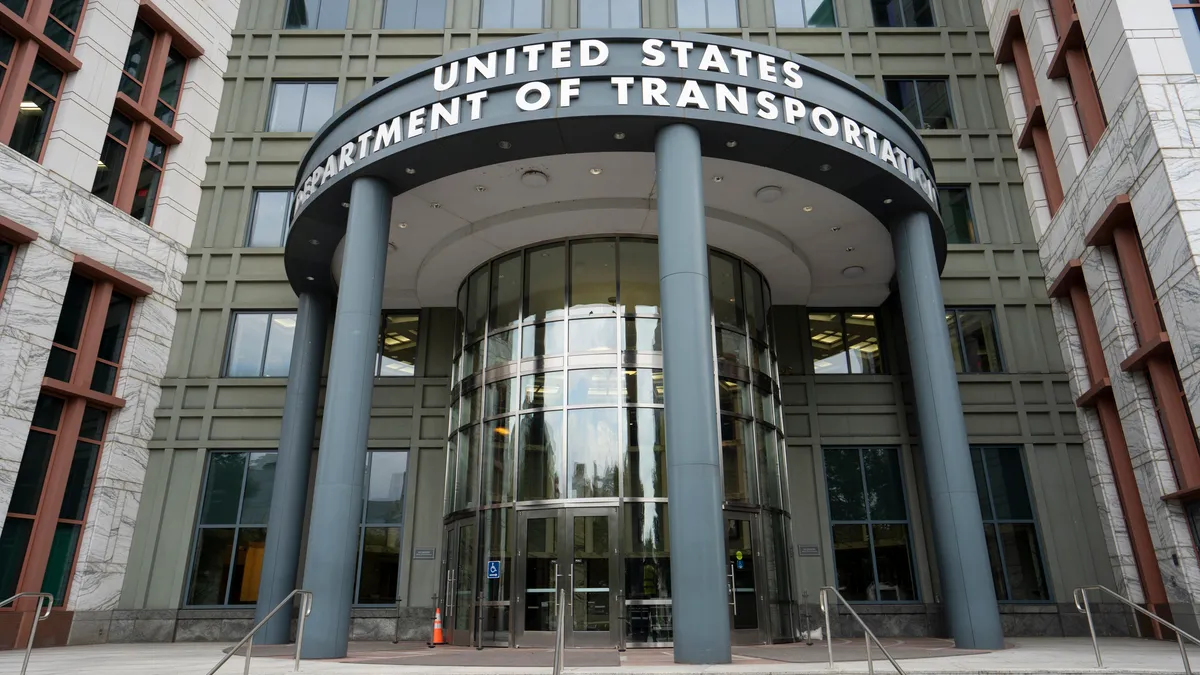Boston's next set of residential waste and recycling contracts are being finalized this week. While the players have largely remained the same, the cost of doing business has jumped in multiple categories.
The new deals — set to run July 2019 through June 2024, with options for renewal — faced a more complex market landscape than the city's last round of negotiations in 2014. Disposal capacity has continued to shrink in the Northeast, the city has new "zero waste" goals and recycling markets have taken a dive.
Recycling
Casella Waste Systems will yet again be awarded the contract to process Boston's residential recyclables — an estimated 38,500 tons per year.
Boston has agreed to a citywide processing cost of $125 per ton, with 50% revenue share for any additional value and a maximum "floor price" of $160 per ton, for the full contract term. This includes a new $10 per ton charge to pay MRF employees Boston's "living wage" rate for the amount of time they spend working on city material.
Based on last month's $2.99 per ton average commodity revenue, this arrangement could potentially cost the city $4.7 million per year. If markets decline further and Boston hits its floor price, that would rise to $6.16 million. Conversely, costs will be lower if commodity values or contamination rates improve.
Compared to Boston's current $70 per ton processing cost and different revenue share percentages, these rates are a stark change. Casella CFO Ned Coletta previously estimated this will represent a $3 million positive annual swing for the company's recycling business.
"We knew it was going to go up. We know that part of that is because of work which we all need to do around lowering the contamination rate, as well as the broader national/international challenges in the recycling industry right now," Chief of Streets Chris Osgood told Waste Dive. "I don't think we had thought it would go up quite this much."
An inbound contamination rate of up to 25% was a key factor and has now become a top priority for Boston. Last month, the city launched a "Recycle Right" campaign and included detailed education language in its "zero waste" plan. The city is also in the process of syncing up a materials list with Casella based on the Massachusetts Department of Environmental Protection's (MassDEP) recommended universal list.
Given that Casella was the sole bidder (Waste Management sat this one out), these results were delayed but seen as largely inevitable. Casella's local MRF is the most well-positioned in the area to service this contract and has been doing so for decades. Now that one of the company's last major recycling contracts has been updated, it will only be further emboldened to push for similar terms in upcoming regional negotiations.
Disposal
In keeping with its current arrangement, Boston has awarded five-year disposal contracts to Covanta and Wheelabrator. Covanta is once again handling the larger share of an estimated 194,000 tons per year. Republic Services also submitted a bid.
Based on an average price of $92 per ton across various districts, Superintendent of Waste Reduction Brian Coughlin projected the collective annual cost for these contracts will come in around $20 million.
Covanta's material will go (via multiple transfer stations) to its SEMASS facility in southern Massachusetts. Wheelabrator will accept material directly at its nearby Saugus facility.
"With the disposal capacity limited and shrinking in the region, we kind of knew we were in for an increase," said Coughlin.
The Northeast already has the highest average disposal tip fees in the country, and many believe this new pricing for Boston will only accelerate that trend. During Covanta's latest earnings call, CEO Steve Jones declined to comment on the bid directly but described it as a sign of a "healthy market" from the company's standpoint.
Recent analysis, prepared for MassDEP by MSW Consultants, confirmed the state's remaining landfills are quickly running out of space. An estimated 22% of Massachusetts is now being exported, with that number expected to rise. A Waste Management site in Chicopee will accept its final tons this week, and local incinerators are also operating at capacity.
Collection and more
Capitol Waste Services, a locally-based company, has been awarded a new collection contract for all residential districts. Capitol is already servicing all but one district, which has been handled by Sunrise Scavenger.
According to Coughlin, the estimated annual cost for this contract will go up from $24.5 million to $28 million. Capitol and Sunrise were the only companies to bid.
In addition to moving collection start times up one hour earlier, the next Capitol contract will include GPS tracking, updated fleet standards and new reporting requirements.
Boston also split off a new contract for the assembly and delivery of collection carts to two local businesses. This is intended to reduce the request backlog by offering cart replacements year-round. In addition, the city selected a new contractor to manage its yard waste composting facility as part of plans to increase organics diversion.
New era of contracts
As part of the "zero waste" plan, Boston is releasing multiple RFPs for new services that could alter the disposal equation and open up more opportunities for companies outside the usual list of incumbents.
The most high profile is an upcoming subscription-based food scrap collection pilot. Osgood said the city remains open to various curbside collection methods and pilot scales as it awaits bids. Boston is also looking to follow other area municipalities by implementing curbside textile collection.
This round of contracts has underscored that while folks like Brian and I focus a lot on the service delivery and on the street, the work we're doing is part of a larger environmental and economic arena," said Osgood, noting the need for a broader approach to improve recycling programs. "[It's] important for us to not just think about the quality of service delivery, but how we might work together as cities or work as state partners."























